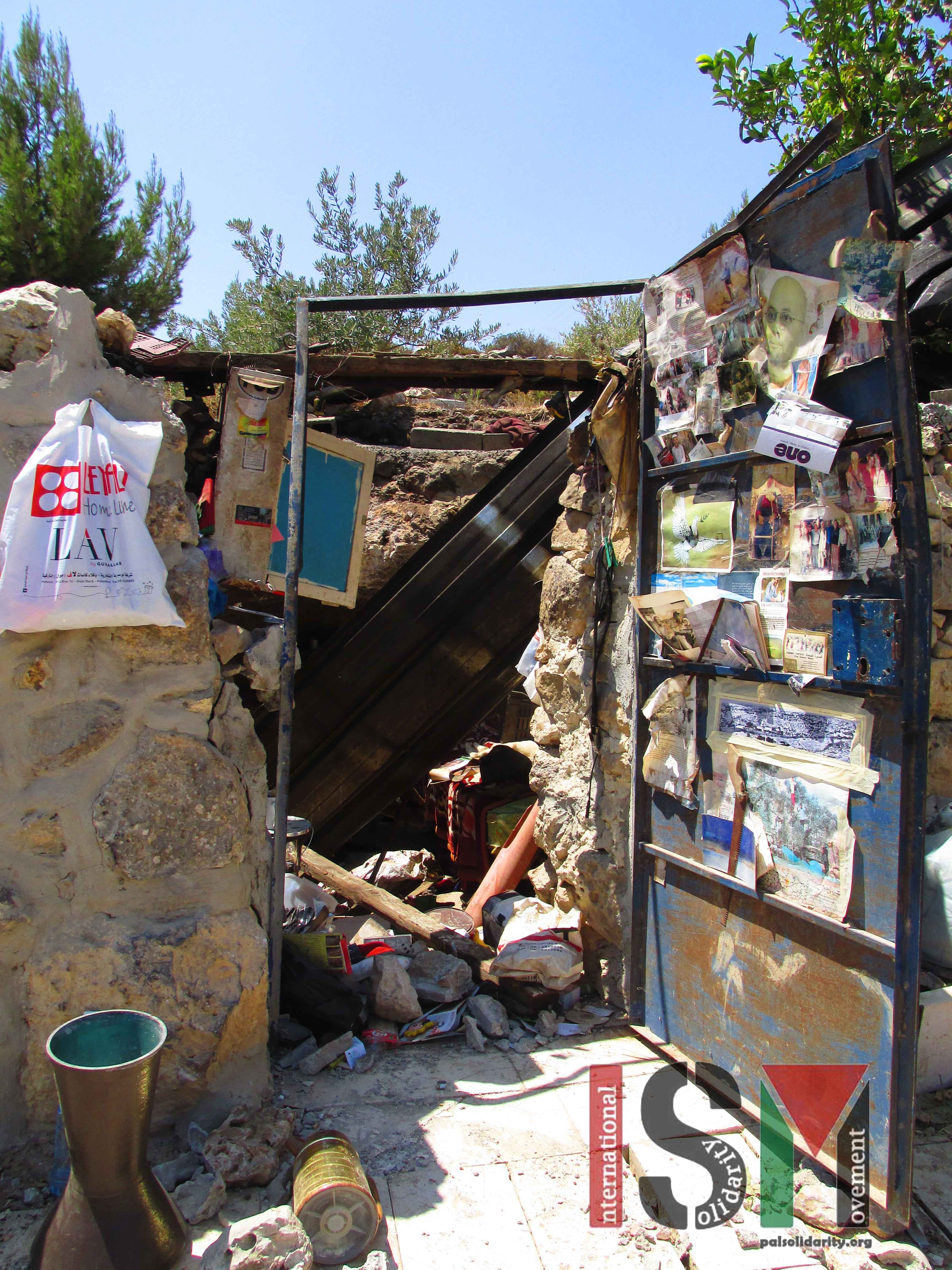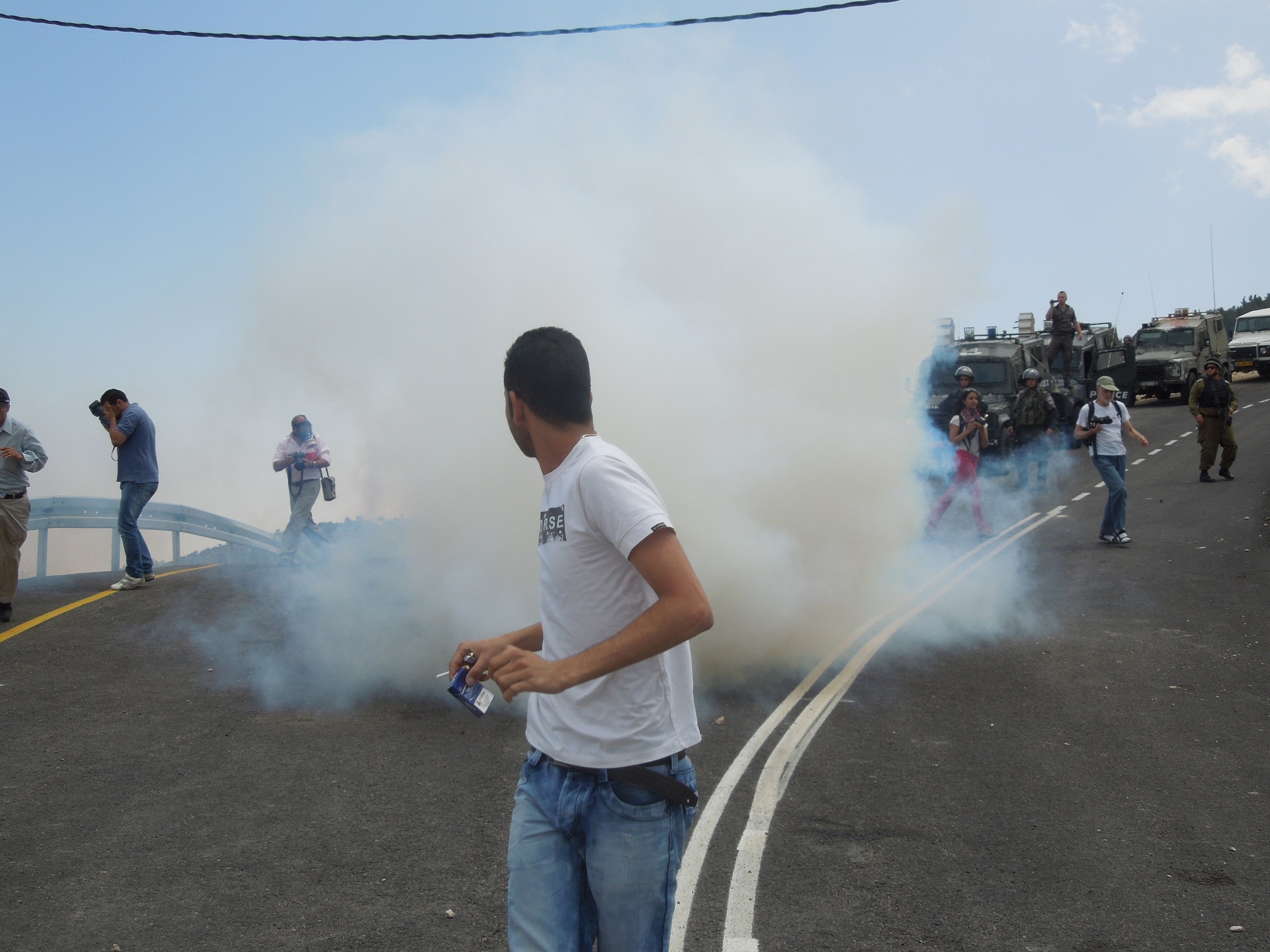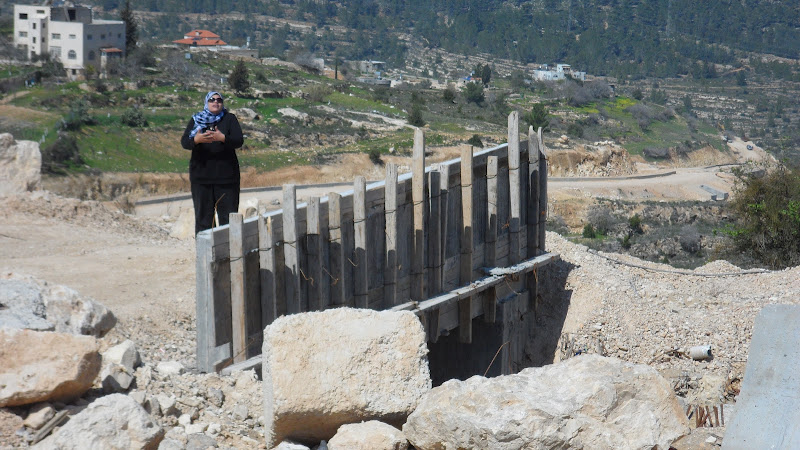Tag: Al Walaja
-

Palestinians and ISM’ers clean up after demolition of Palestinian home
20th August 2014 | International Solidarity Movement, Khalil team | al-Walja, Occupied Palestine At 10am on the 18th of August in al-Walja, north of Bethlehem, the Israeli army demolished the residence of a Palestinian man. The man was alone on his land when the solders arrived with a bulldozer. The soldiers stated that they had a court…
-

Protest against new road block in the village of Al Walaja
11th May 2013 | International Solidarity Movement | Al Walaja, Occupied Palestine By Team Khalil On Friday 10th May, Palestinians from the village of Al Walaja protested against a new road block, placed by the Israeli army in one of the two roads giving them access to Bethlehem. The iron barrier that was placed earlier…
-

Al Walaja: Tunneling to get home
by Ramon Garcia 8 March 2012 | International Solidarity Movement, West Bank Some Palestinians and Internationals gathered in the village of Al Walajeh on International Women’s Day to show solidarity to Omar and his family, especially his wife ,whose health has suffered from Israeli occupation in the small village. Sherinne Alaraj of the local…
